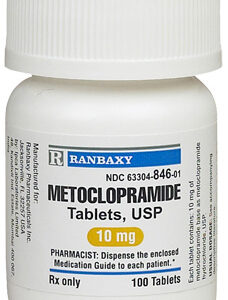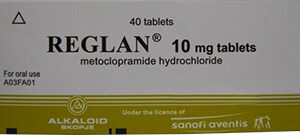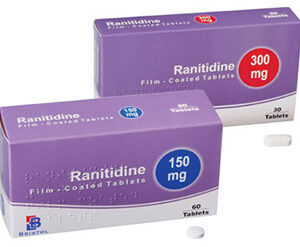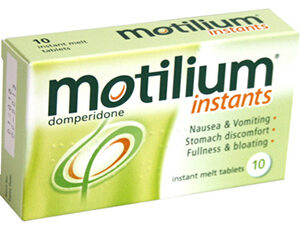Motilium Overview
Motilium, known generically as domperidone, is a medication that promotes the movement of food through the stomach and intestines, thereby improving symptoms of certain gastric disorders. It is commonly used to treat nausea and vomiting, and to relieve stomach discomfort such as feelings of fullness or bloating. Motilium is a dopamine antagonist with antiemetic properties, which does not readily enter the brain, thus avoiding associated side effects compared to similar medications. It is available upon prescription and should be used under healthcare professional guidance.
Therapeutic Indications
The primary indication of Motilium is to provide relief from nausea and vomiting. It is also prescribed to treat delayed stomach emptying (gastroparesis), which can result in feelings of stomach fullness, bloating, and heartburn. Moreover, this medication can be utilized to manage symptoms of stomach discomfort that often accompany dyspepsia.
Dosing Instructions
The dose of Motilium is typically determined based on the individual’s specific condition and response to treatment. For adults and adolescents weighing 35 kg or more, the usual dose is 10 mg taken up to three times per day, with a maximum daily dosage cap at 30 mg. These tablets should preferably be taken prior to meals, and if necessary, before bedtime. Dosage adjustments are necessary for varying age groups and medical conditions, so it is important to follow the prescriber’s instructions carefully. Domperidone should be taken for the shortest duration necessary to control nausea and vomiting.
Usage Cautions
Prior to starting Motilium, it is crucial to disclose to a healthcare provider all existing medical conditions, particularly concerning heart health. This medication can cause changes to the heartbeat, a condition known as QT prolongation. Individuals with a history of cardiovascular issues, electrolyte disturbances, or those taking other medications that affect the heart should exercise caution. Regular monitoring by a health professional may be necessary. Use of this drug in those with liver problems may require dose adjustment or an alternative treatment plan.
Interactions to Consider
Motilium can interact with several other drugs, potentially affecting their efficacy or increasing the risk of harmful effects. These include certain antibiotics, antifungals, antidepressants, antipsychotics, and drugs used to treat heart conditions. Combinations of these medications with domperidone can lead to abnormal heart rhythms. To prevent any hazardous drug interactions, always inform healthcare professionals of all prescription, non-prescription, and herbal products being used before beginning treatment with Motilium.
Potential Adverse Reactions
Although many individuals do not experience serious side effects while taking Motilium, some may encounter adverse reactions. Common side effects include headaches, dry mouth, and gastrointestinal disturbances such as diarrhea or abdominal cramps. More serious, but less common reactions involve changes in heartbeat, mood swings, or allergic responses. Should any unusual symptoms occur, one should immediately seek medical attention.
Avoiding Use If Necessary
There are certain conditions where the use of Motilium is strictly advised against. These contraindications include known allergies to domperidone or any components of the medication, a history of cardiac arrhythmias, heart failure, and other serious heart conditions. Individuals with a pituitary gland tumor (prolactinoma), gastrointestinal bleeding, or a blockage or perforation in the stomach or intestines should also avoid this medication.
Considerations During Pregnancy
The effects of Motilium on the developing fetus are not well established. Therefore, it should only be administered to pregnant individuals when absolutely necessary and when benefits outweigh potential risks. The drug is known to pass into breast milk in small amounts; hence, caution is warranted when prescribed to breastfeeding mothers. Detailed discussions with a healthcare provider must precede the use of Motilium during pregnancy and lactation.
Guidance on Overconsumption
In cases of overdose, symptoms such as drowsiness, disorientation, and heart rhythm disturbances might arise. Should an overdose be suspected, immediate medical intervention is imperative. Conversely, if a dose is missed, it should be taken as soon as remembered unless it is almost time for the next scheduled dose. In such cases, the missed dose should be skipped to prevent doubling up on doses.
Safekeeping and Management
Motilium should be stored at room temperature, away from light and moisture. Keeping this medication out the reach of children and pets is vital for their safety. If Motilium expires or is no longer needed, appropriate disposal is essential to prevent accidental ingestion or harm to the environment.
Motilium: Common Inquiries
Can Motilium be used long-term? Usually, Motilium is prescribed for short durations. Chronic use should be under strict medical supervision due to potential increased risks of side effects.
Is it safe to drive after taking Motilium? While it does not usually affect the ability to drive, some individuals may experience drowsiness. In such cases, operating heavy machinery or driving should be avoided.
How quickly does Motilium work? The effects of Motilium can often be felt within 30-60 minutes of ingestion, but this may vary depending on the individual.
Can alcohol be consumed with Motilium? Alcohol may worsen the side effects of Motilium, such as dizziness or drowsiness, and is generally discouraged during treatment.
Does Motilium have any effect on appetite? While it’s not a common side effect, changes in appetite may occur. If significant, it should be discussed with a healthcare provider.






Reviews
There are no reviews yet.